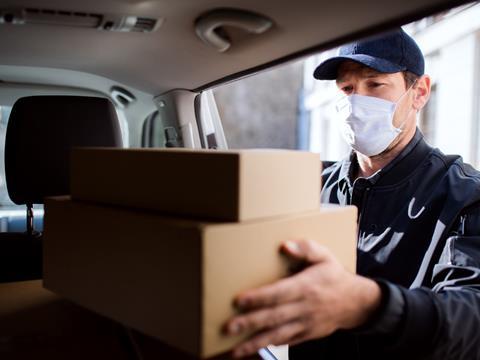
DS Smith is warning brands and retailers that the Covid-19 pandemic does not mean they can overlook their environmental efforts after European research shows that shoppers continue to prioritise sustainable packaging.
A new study, conducted by DS Smith and Ipsos MORI, reveals that despite the global health crisis, shoppers still have their eye on the environment; with 85% of consumers wanting to buy products that use as little packaging as possible, and almost a third (29%) admitting that they have stopped buying particular brands altogether because their packaging was not sustainable.
The analysis was carried out among 9000 respondents across 12 European countries and shows that while shopping habits may have changed, sustainability continues to be key.
The pandemic has led two thirds (68%) to agree that they try to spend as little time in-store as possible, and has prompted sizeable growth in e-commerce. It is important therefore to note that half (48%) of online shoppers say they have received ‘unsustainable’ e-commerce packing, and one in five (22%) say they have stopped buying from some online retailers because the packaging they sent was not sustainable.
Stefano Rossi, CEO DS Smith Packaging commented: “We’ve spent the last eight months helping our customers adapt to a seismic shift in consumer behaviour and the ever-evolving challenges of the pandemic. As a leader in innovative packaging solutions we need to understand how consumer attitudes change to be able to best serve our customers and society. This new research not only reveals what has changed because of Covid-19, it also shows what priorities have endured and that sustainability is still front of mind for consumers across Europe. Retailers and brands need to embrace sustainable packaging at such an important time to ensure they reap the environmental and consumer benefits.”
Hygiene is another concern for consumers with more than half (57%) saying they wash their hands thoroughly after touching e-commerce packaged products and 30% throw packaging away more quickly - highlighting the need for visible, straightforward disposal information.
56% of shoppers now worry about how many people have touched in-store products (78% in Portugal, 68% in Spain and 65% in the UK). As a consequence, some choose items from the back of the shelf which people are less likely to have touched.
One in three (33%) also wash or disinfect all loose items such as fruit and vegetables and 12% now avoid buying loose unpacked goods (22% in Finland and 19% in the UK). In response to this, DS Smith has developed a host of new innovative packaging designs such as corrugated punnets for fruits and vegetables, eco-boxes for eggs, and handling solutions for bottles and dairy products.
DS Smith says it expects the need for new sustainable packaging solutions will rise in the coming months, with the company continuing to apply its Circular Design Principles - developed in collaboration with the Ellen MacArthur Foundation - to design high-performing, circular packaging solutions to meet the evolving challenges of the marketplace.
The principles reflect DS Smith’s aim to use packaging and recycling to enable the circular economy, a goal laid out in its recently launched Now and Next Sustainability Strategy. Two of the company’s focus areas are to offer 100% reusable or recyclable packaging and to replace problem plastics with sustainable alternatives.
Access to the report can be found on the DS Smith website here.













